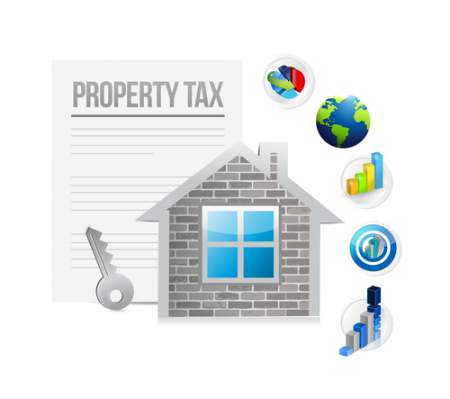Fees that are paid at the end of a real estate transaction are called closing fees, also called closing costs.
The period where the property’s title is transferred from the seller to the buyer is called closing.
Both the seller and buyer pay closing costs on a house.
What Type of Fees Are Associated With Closing Costs?
Closing cost fees are dependent on where you live, the type of property being bought/sold, and type of loan. Here is a list of some of the fees that you might encounter:
Application Fee – the application fee is for the lender processing your application. Not all lenders charge an application fee and it is usually negotiable.
Appraisal Fee – the appraisal fee is paid to the appraisal company to determine the fair market value of the home.
Attorney Fee – the attorney fee goes to an attorney to review the closing documents on your home. This fee isn’t required in all states.
Title/Escrow Fee – these closing fees are paid to the title company, or the escrow company to complete the paperwork of transferring the ownership of the home.
Courier Fee – the cost of transporting documents to finish the loan transaction.
Credit Report Fee – your credit report is accessed from your lender, who is charged a fee. This fee is then passed on to you. Your credit score will have a large impact on the interest you’re charged.
Property Taxes – property taxes at closing cover any portion of the property taxes currently due on the property.

Mortgage Insurance – mortgage insurance is typically required if you are financing more than 80% of the home’s value.
Life of Loan Coverage Fee – this amount is used to determine whether your property is in a flood zone. If you’re property is an area that is at risk for flooding, you must buy flood insurance.
Inspection Fee – a home inspection is generally required to ensure there are no issues with the property before closing.
Homeowners Association Transfer Fee – Homeowner Association related fees are typically paid by the seller, however, may be negotiable. This shows that the dues are paid and current.
Homeowners’ Insurance – homeowners insurance covers potential future damage to a home.

Survey Fee – a survey fee is paid to a survey company, so they can verify the property line. This may not be required in all transactions.
Transfer Tax – the transfer tax is due after the title is transferred from the buyer to seller.
Pest Inspection Fee – this fee covers the cost of inspections on your home to ensure there are no major issues with the home related to common pests.
Recording Fee – the recording fee is paid to your city’s recording office. The recording office keeps track of your land records.
Underwriting Fee – the underwriting fee is paid to the lender for the research they’ve done to determine if you qualify for the loan.
What Are The Closing Costs In Michigan?
If you live in the Michigan area and are selling or buying a house, you’re probably wondering what the closing costs are.
For buyers and sellers in Michigan, you will encounter multiple fees including Deed fee, Transfer tax, Commission fees, Title policy, and other costs. In Michigan, the deed fee is priced around $20.
For example, if you have a house that is selling for $100,000, the Owners Title policy will cost $700.
The cost of the Owners Title policy increases by $300 for every $100,000. 6% of the house’s sale price is the standard Commission fee in Michigan, although the commission is always negotiable. In a buyers offer, other costs like repair concessions and the home warranty will be discussed.
How Do You Control Closing Costs?

One way to help control the closing costs is by choosing the title company. The condition of the market and the state you live in often determine whether the buyer or seller chooses the title company.
In addition, another way you can dictate closing costs is by choosing the settlement date The settlement date will have a big impact on the overall closing costs.
If your settlement date is at the end of the month, you may only pay up to two days worth of interest.
On the other hand, if your settlement date is at the start of the month, you may have to pay 30 days worth of interest.
Are There Ways To Avoid Closing Costs?
There may be ways you can reduce the amount of closing costs you pay, or how much you pay up front, but you will typically pay some amount toward closing costs.
You can get a no closing cost mortgage, which allows buyers to not pay up-front fees for closing on a home.
In addition, a buyer can negotiate who pays closing cost fees between the buyer and seller. Some sellers will agree to pay a portion of the closing costs for the buyer.
Why Do You Have To Pay Closing Costs?
Paying for your house and closing costs might be expensive, but it is essential.
- First, having a title search ensures you have legal possession of your home.
- Second, lenders want a return on their investment after loaning buyers a big chunk of money.
- Third, your escrow account is a good way to ensure you don’t neglect paying your taxes and insurance.
For example, the escrow account can set you up to pay $300 dollars a month for taxes and insurance, instead of having to come up with $4,000 at one time.
These closing costs handle the compensation of those involved in the process, as well as protection for you and those that loan you money.
Contact The Norber Real Estate Group
The best source of information about local communities and real estate topics is your real estate agent. Give Joshua Norber of the Norber Real Estate Group a call today at 248-785-3737 to learn more about the area, discuss selling your house, or tour available homes for sale.
![[Metro Detroit Real Estate 2020]](https://jknorber.com/wp-content/uploads/2022/04/eXpRealty.jpg)